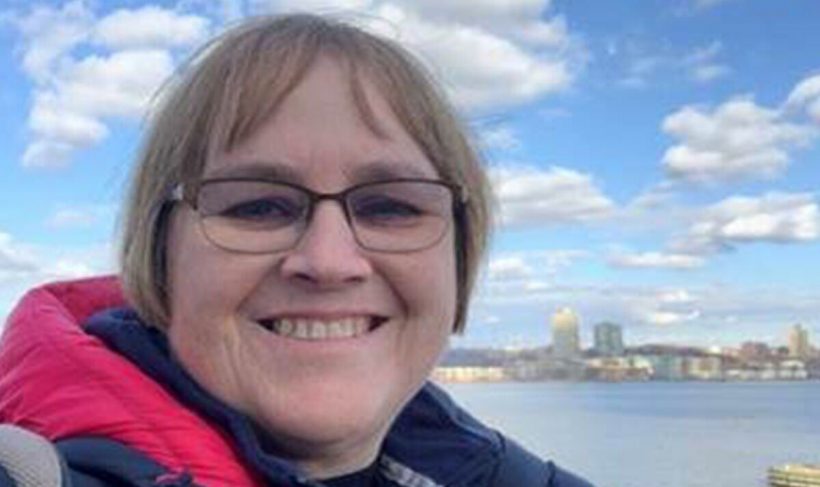This Morning: Breast cancer examination
“I was in the shower when I ran my hands over my breasts as I normally do,” Jill, 56, said. It was June 2019 when she “found something” that gave her a fright; it felt like a lump. “It was a Sunday,” Jill recalled. “I called my GP the next day.”
When the doctor pressed against Jill’s breast, she too felt the lump and referred her to the hospital.
“I had a routine mammogram in 2017 which was clear,” Jill remembered but, this time, Jill had another mammogram and a biopsy.
“I was told I would have to wait one to two weeks for the results of the biopsy,” Jill said. “But I felt the doctor already knew what he was looking at.”
When her official results came through, “doctors were confident the cancer had been caught early”.

They soon discovered, however, that the cancerous lesion had spread to Jill’s lymph node.
The medics decided to surgically remove the affected lymph node, and another, as well the abnormal tissue in her breast on August 8, 2019.
Taking part in Cancer Research UK’s Race For Life in 2021, Jill found the experience “emotional”.
“I did it in Trentham Gardens, Stoke-on-Trent, which is the nearest site to where I live,” said Jill, having raised “about £600”.
“Now I have been given a second chance at life I want to live it more fully and do more of what interests me,” beamed Jill.
“I had a wonderful trip to New York this year and am thinking of retiring earlier than I might otherwise have.”
Jill added: “What I’m really passionate about is raising awareness of the importance of early detection.
“I was lucky my cancer was caught quickly, and even though triple-negative breast cancer is more difficult to treat, due to limited treatment options, I am thankful to be in remission.”

Triple-negative breast cancer
Cancer Research UK explains triple-negative breast cancer occurs in around 15 percent of cases.
The charity says: “Triple-negative breast cancers are cancers whose cells don’t have receptors for the hormones oestrogen and progesterone [and] a protein called Her2.”
Consequently, this type of cancer doesn’t respond to hormone cancer treatment, nor the medication trastuzumab.
The main treatments are surgery, chemotherapy, and radiotherapy, with various factors – such as the size of the tumour – influencing the treatment plan.

Symptoms of triple-negative breast cancer can include:
- A new lump or thickening in your breast or armpit
- A change in size, shape or feel of your breast
- Skin changes in the breast such as puckering, dimpling, a rash or redness of the skin
- Fluid leaking from the nipple in a woman who isn’t pregnant or breast feeding
- Changes in the position of nipple.
The charity recommends: “Make an appointment to see your GP if you notice anything different or unusual about the look and feel of your breasts.”
Source: Read Full Article
